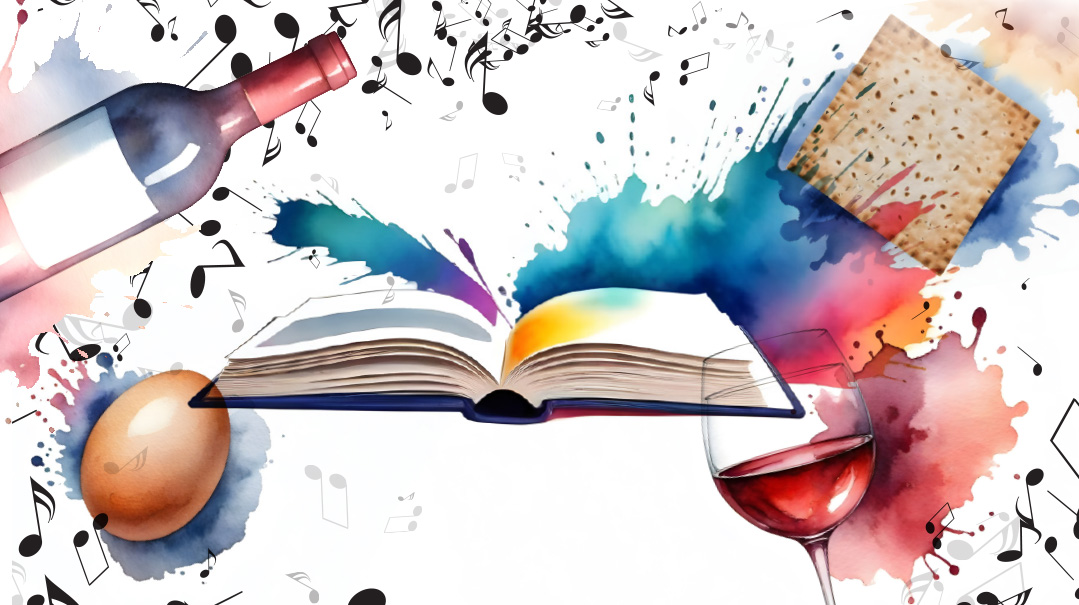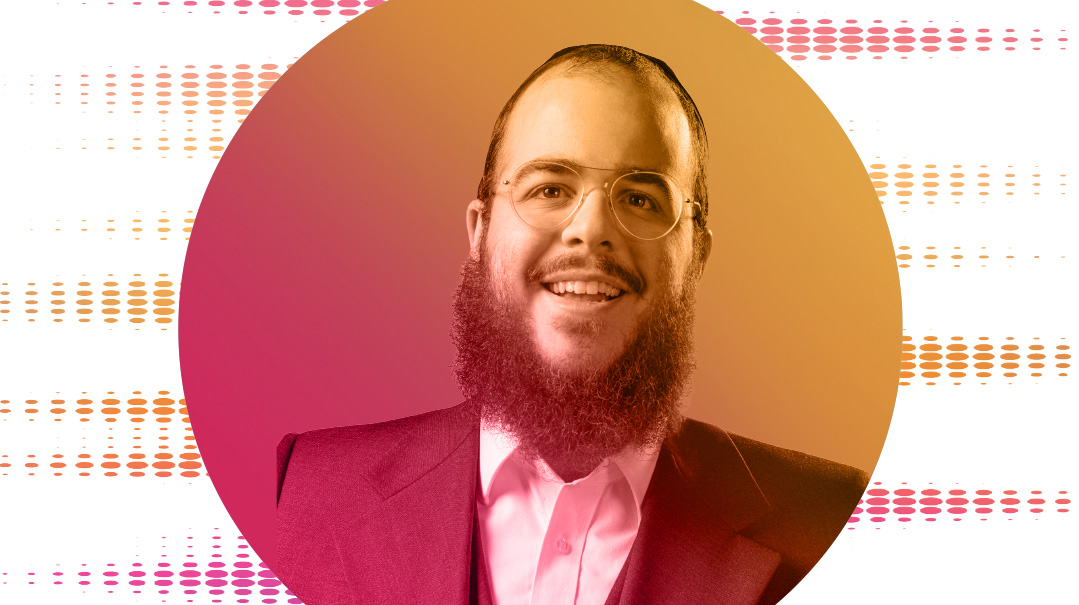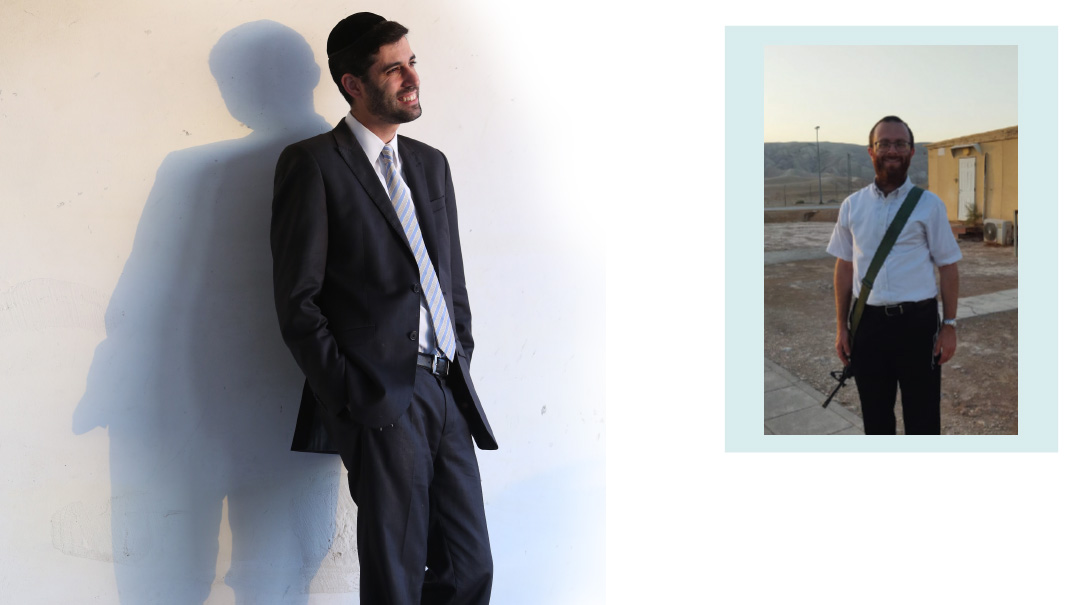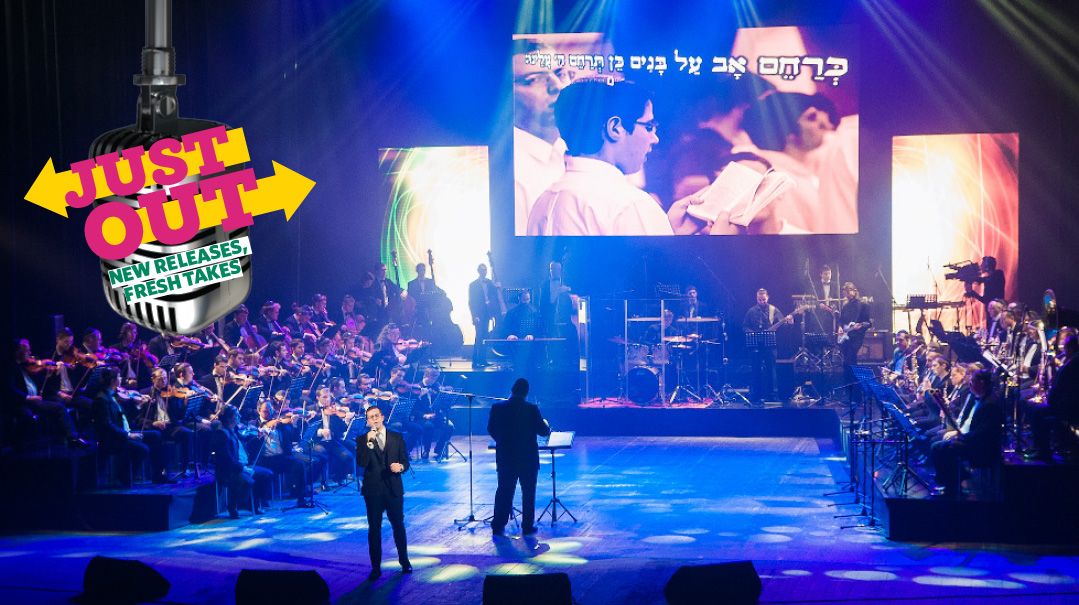Songs to Live by
| March 4, 2020We asked a panel of prominent Jewish music lovers to give us a glimpse into their personal soundtracks
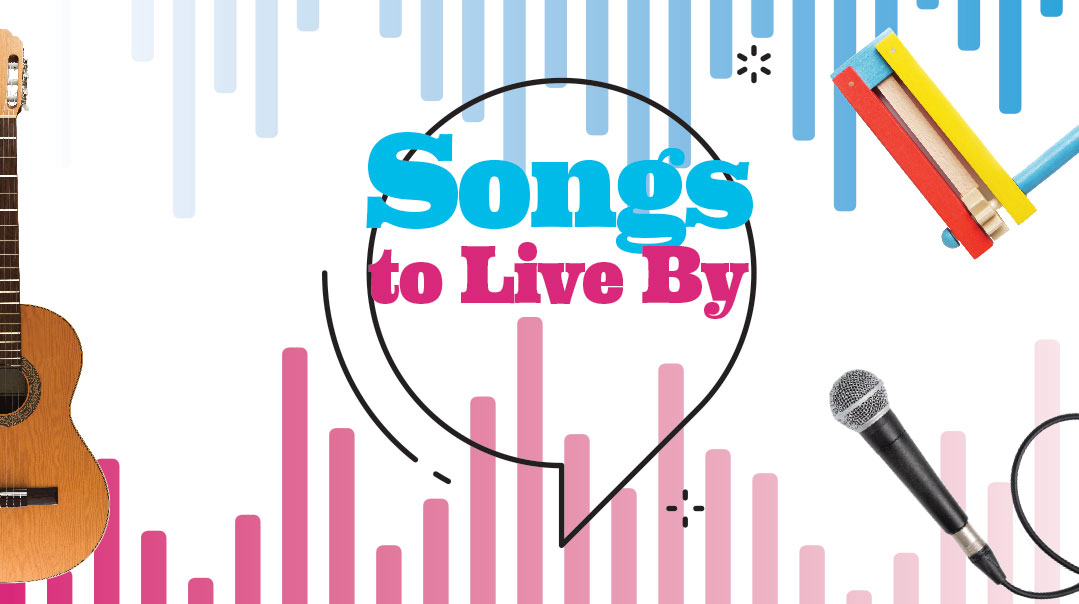
The Panel
Yedidya Meir
Yedidya Meir is an Orthodox Israeli journalist, satirist, political commentator and popular morning radio show host, where he often introduces new music. He also has a weekly program together with his wife, Israeli television reporter Sivan Rahav-Meir, who has become famous for her nationally broadcast Torah shiurim.
Velvel Schmeltzer
Velvi Schmeltzer is the music commentator and host of the Leil Shishi Thursday night music program and the Motzaei Shabbos Kishroines series on Kol Mevaser, the Yiddish language telephonic station. He is also the long-standing head counselor at Camp Chaim Veshalom, Munkatch.
Yisroel Besser
Yisroel Besser is deputy editor at Mishpacha, and is a bestselling author, with such titles as Reb Shlomo, Reb Meir, Reb Leizer, Reb Shayele, The Chasam Sofer, The Tosher Rebbe, Like Seeds of a Pomegranate, and other works.
Yoely Polatseck
Yoely Polatseck is a singer, songwriter, and musician. He is the owner and vocal arranger of the Zemiros Choir.
Elchanan Schwarz
Elchanan Schwarz is a psychotherapist and director of crisis intervention for BINA Stroke and Brain Injury Assistance. After hours, he’s the voice of Fiveish, Oorah’s loveable five-dollar-bill mascot.
What did you listen to in the car today?
Yisroel: Shwekey’s Those Were the Days II. I’m musically ADHD and keep switching albums, so I usually listen to an album once and then I’m done. But I can drive back and forth from Montreal to New York with this album playing over and over. Yaakov really does justice to oldies and the arrangements and movements are spectacular.
Elchanan: The new Aish! Of course, what else?
Velvel: At this point, I don’t have the luxury of listening to the albums I like. I always have to listen to whatever is new and whatever I have lined up to talk about on my Thursday night program. And I can’t relax while I listen — I have to concentrate so that I’ll have something to discuss. Today I listened to the new Yingerlach.
Yedidya: Naftali Kempeh’s new album, Ana Eileich. A year and a half ago, his first album came out. I thought it was an unbelievable combination of traditional kumzitz-style songs and original pieces, such as his “Tefillat Chanah” song. I wondered if Naftali would ever have enough material for another album. The answer is that he does, and the second is even better than the first.
Yoely: Aish III. What a comeback for Abie!
What’s the best harmony ever?
Elchanan: Any time Avraham Fried harmonizes with himself. His voice really complements his voice, more so than other singers it seems.
Yoely: Yossele Rosenblatt’s world renowned “Shir Hamaalos.” There are so many ways to go about chords harmony on this song to make it sound magical.
Yisroel: The classic “Rabbos Machshavos,” recorded by the Rabbis’ Sons back in 1967 and the favorite harmonized kumzitz song of the ’70s. The harmonies are both old-school-natural and no-frills, but add another whole dimension to the song. It feels like they spell out, in song, that atzas Hashem hi sokum.
Velvel: Harmonies are a matter of taste. Personally, I love the harmonies Mona Rosenblum arranged on his vintage Niggunei Pittsburg CDs. On the track “Borei Olam Bekinyan” of the CD Bezos Ani Botaiach, he did a particularly beautiful job — I can never get enough of listening to it.
Do you generally prefer new music or old music?
Velvel: I love the old stuff. I think I feel more comfortable in my skin with older music than new stuff. That said, I do enjoy the new music produced today. I can always listen to my brother Lipa’s material — he’s a genius of the new musical age. The creative ideas never stop coming, and when he does something, he does it all the way, and every nuance has meaning.
Yedidya: Depends on my mood at any given moment. In general, I love older music. But recent heimishe music has borne out the saying “old is the new new,” and we’re seeing a return to old style. I’m loving the new Yingerlach albums, which are a throwback to the feel of Moshe Goldman’s classic Camp Shalva albums. Their producer, Naftoli Schnitzler, is a brilliant innovator who somehow preserves an authentic chassidish flavor. I also love another old-style new album, Yisroel Werdyger’s Du Voint ah Yid, with Shua Fried’s arrangements. Yisroel Werdyger is an artist and person I truly admire.
Elchanan: Old, absolutely and definitely.
At my dream simchah, I’d be serenaded by. . .
Velvel: Reb Yom Tov Ehrlich
Yoely: Avraham Fried, Beri Weber, and Mordechai Shapiro. I have more to list, if I can just have ’em all.
Yisroel: Rivie Schwebel
Elchanan: My great-great grandchildren
Yedidya: At our wedding, 16 years ago, the Belz composer and choir leader Reb Yirmiyah Damen sang. I think it would be hard to top that.
What’s the song of your youth (which you won’t hear today)?
Elchanan: “Vesain Banu.” I think we just drained it of everything it had and there is nothing left for future generations. Like “Samcheim.” And “Racheim.” They’ve gone the way of Charidy, the 100k raffle that your nephews call you about, and parlor meetings without charcuterie boards.
Yedidya: “Besiyata Dishmaya,” “Klal Yisrael,” and “Shabbos Yerushalayim.” I miss those songs, and I miss the days when Miami Boys Choir was at its peak. We’re spending this year in the States, and my dream is to attend a Miami rehearsal and watch Yerachmiel Begun work, from up close — just him, his choir, and the piano.
Yoely: Abie Rotenberg’s “Neshome’le.”
Yisroel: “Bemotza’ei Yom Menuchah,” by Reb Benzion Shenker. It’s not just the musical style that you won’t hear today, but even that type of song. It speaks of a time when Yidden sat down to Melaveh Malkah and they meant business. They needed chizuk for the week ahead, a reminder of who they were before six more days of darkness. To me, it’s a song of my father, who sits at Melaveh Malkah with candles, a tablecloth, and gefilte fish.
Velvel: “Borchi Nafshi,” sung by Zohar. Everybody knew that song, even if it wasn’t a “chassidish” album. It takes me back to being a child, lying on the floor completing a giant alef-beis puzzle, secure in the knowledge that my parents were hovering in the background.
Back then, we got to know our music properly, and we enjoyed it without the constant beeping of our phones. Today, the Jewish music market is unbelievably saturated: It’s as if you’re being served a dish in a restaurant, but as you lift your fork to take a bite, they whisk away your plate and change it to the next course and the next. Every week brings a new album, and you barely have time to taste it. You can’t really get to know the music, let alone “digest” it.
What song would you say “broke the mold”?
Yisroel: “Tanya.” It announced the arrival of Yossi Green, and songs with lyrics that weren’t catchy or common, but worth getting to know. While you probably wouldn’t be able to sing many of these songs, like “Tanya” or “Aderaba” or “Omnom,” you enjoyed trying just the same. (The people around you maybe enjoyed your efforts a little less.)
Elchanan: “Let My People Go.” Because MBD called Gehinnom by its English name.
Velvel: “Memalei Kol Almim,” a Breslov niggun that was composed by Rav Eliezer Shlomo Schick and Shlomo Carlebach, and renewed and remade by Rav Meir Dovid Farkash. It’s the first song that was both slow and fast. It’s played during the fast dancing and then it brings the whole wedding to a standstill, swaying with the dveikus of the slow beginning. Since then there have been others of this style.
Yoely: Beri Weber’s “Ribbon Kol Haolamim, Lo Al Tzidkaseinu.” It has a certain simplicity, yet it’s not the typical ballad. The niggun penetrates deeply and gives expression to the meaning of the words. Kudos to Mendy Hershkowitz for the gorgeous arrangement.
What are the top five songs on your playlist?
Yoely: “Bein Hatzlilim,” sung by Yonatan Razel. Then there’s “Vesiten Lanu,” by Mordechai Shapiro; “Pashut Anashim,” sung by Avraham Fried on his Hebrew album, Kama Tov Shenifgashnu; “Memories” by MBD; “Ma Yisron,” sung by Shmueli Ungar.
Elchanan: “Halev Sheli,” By Omar Adam and Ishai Ribo; Dedi’s “Omnom” (I rediscovered it recently); “Song for My Brother,” by Issac Bitton a.k.a. Raya Mehemna (It’s awesome — give it a listen); “Retzei,” by Avraham Fried (I just listen to that Yossi Green intro over and over again — can’t stop); “Lakeil Asher Shovas,” from MBD’s Hold On album — love those guitars in the intro.
Yisroel: “Reach out,” by JEP; “Korev Yom,” by Rabbi Michel Twerski; “Lulei Sorascha,” by Abie; “Hatov Ki Lo Chalu Rachamecha,” by Carlebach (Naftali Kempeh’s version is awesome); “Ima Im Hayiti,” by Hanan ben Ari (which he wrote as a 17-year-old after witnessing the destruction of Gush Katif).
Velvel: “Brivele,” written by Motti Illowitz and sung by Motty Steinmetz; “Ribbono shel Olam,” sung by MBD and composed by Mona Rosenblum; “Reb Shayele,” a heartbreaking song written by Reb Pinky Weber and sung by Michoel Shnitzler, about a Holocaust survivor who had been forced to push corpses into the ovens, and now seeks a tikkun by baking matzos mitzvah, pushing the matzos into the oven; “Acharon Acharon Chaviv,” sung by my brother Lipa — very moving message; “Tekah B’Shofar,” written by Yossi Green, released on Fried’s Chazak album.
What music do you like to work to?
Yisroel: I pretty much only listen to classical music when I write.
Elchanan: When I was building my deck, I listened to a lot of Ayal Golan, Gad Elbaz, Lior Markis, and other “since the lyrics are in Hebrew their music is kosher” singers. Gave me lots of energy.
Yedidya: I find it hard to write while listening to music, because I think about the music instead of what I need to write. This year, on shlichut in America, I do find myself listening to a lot of music while traveling.
Is there an artist you’re happy your kids appreciate?
Elchanan: I so wish I could say Carlebach. Unfortunately, they’re not there yet. I guess I’m glad they appreciate the Oorah zemiros.
Yisroel: Abie Rotenberg. To be honest, Shwekey’s Those Were the Days II gets some of the credit — they heard him singing “Joe Dimaggio’s Card” and went back to the source, and it was a rabbit hole they haven’t come out of yet.
Velvel: I’m very picky about what I bring home. I only bring in genuine chassidish music, singers like Isaac Honig, Arele Samet, and Motty Steinmetz, or the L’Chaim and Yingerlach albums. I’m happy my children enjoy them.
Yoely: The Razel brothers. Their music is very deep, very different. I gave their albums to my son, who is into contemporary music, in order to open his ears to more complex chord progressions than are commonly used today. It took a while for him to appreciate the sound, but then he was hooked, and I can see the influence in his own emerging compositions.
Yedidya: A bit of a sensitive question. The musical education I would have liked to give my children hasn’t been a wild success, for the moment at least. I don’t think I’ve set a bad example, but they’re at an age when their tastes differ substantially from mine. I’m hoping they’ll still grow up.
If I could recommend one song for every Jewish kid to learn, it would be…
Yisroel: “Hoshia Es Amecha,” which, many people don’t know, was actually written by Rabbi Dr. Abraham J. Twerski. It just feels like it contains the essential Jewish spirit and hope. In our shul, we sing this after Ne’ilah, but I was never sure why. Later, when I worked on the biography of Rav Shlomo Freifeld, I learned that he also sang it after Ne’ilah. It’s a very Jewish song.
Elchanan: Every kid should pick an older hit album and learn it. And then use that album to pick songs when they daven for the amud after their bar mitzvahs. That way we don’t have to hear “Lema’ancha,” “Ein Aroch,” and “Shomrei Mitzvosecha” every week. This is, in my opinion, the best idea in Judaism since the NASI Project.
Velvel: “Kah Echsof.” I have a real soft spot for that one. I make sure we sing it every Friday night in camp. We once had a local politician who drove by one Friday night. He heard the camp singing this song, came in, and stayed for about 45 minutes listening. Yes, it’s old, but it’s never boring.
Yedidya: It would be one of the old Chabad songs. I think those convey a sense of the immense depth of Yiddishkeit. I’m waiting for Avraham Fried to bring us more of them.
Yoely: “Kah Echsof.” I sing at Shabbos programs all over the Jewish world, and it’s unreal how the crowds want to sing this song again and again. They repeat it at all three Shabbos meals. It’s a chassidish song composed with such intense spirituality that it speaks to everyone’s soul.
My favorite intro
Yoely: It’s difficult for me to name a favorite, as I sing so many different intros every night. What definitely stands out is “Muvdolim,” from MBD’s Efshar Letaken album, written by Eli Laufer.
Yisroel: I always felt that the intro to “Vesei’oreiv,” by Shlomo Yehuda Rechnitz, was sort of brilliant in its simplicity. Today, everyone takes Reb Shlomo Yehuda seriously as a composer, but then that wasn’t the case. Those are ambitious words to compose to, and the intro — which is essentially a shul, nusach-style piece — delivered a message. Someone who listens to so many Yiddishe tzaros and needs is able to feel for people differently, and the song, the plea for rachamim, for the return of the Shechinah, expressed that.
Velvel: Number one is “Samcheim” — without the “Oy yoy yoy yoy yoy yoy yoy” it would not have happened. Other good ones are “Elokim Tzevakos Shuv Nah,” from MBD’s We Are One, and “Besimcha,” from Yosef Moshe Kahane’s Lechaim Yidden.
Yedidya: Yeedle Werdyger’s “Ve’atah Banim Shiru Lamelech.” The song was composed by Rabbi Hillel Paley, but that famous intro is actually Moshe Laufer’s. I was the shadchan for that song, suggesting it to Yeedle.
What’s the right volume for wedding music?
Yedidya: Much lower than is common nowadays. The volume at weddings today shows a lack of understanding of music, but more seriously, a lack of respect for elders. And I’m not talking about the elderly, I’m talking about my generation. (I’m 43. Okay, maybe that’s old for some.) Today’s volume — and the techno-beat style — scream “the wedding belongs to the young people here, and we couldn’t care less if anyone older than us leaves here with a headache.” And we’re talking about holy Jewish weddings. It hurts.
Yisroel: There is no right answer to this. The chassan and kallah should choose — the mitzvah is to make them happy.
Elchanan: Somewhere between an F-18 and the mechutan doing the “IfyouwanttogetpaidforthisweddingyoubetterturnitdownIdon’tcarewhatthechassan’sfriendswant!”
Velvel: Those who want to dance should be able to dance, but at the same time, those who want to talk should be able to hear each other.
Yoely: Anything up to 85 decibels, unless everyone is wearing hearing protection. If they are, then up to 100 decibels is fine too.
If you could match up a current singer with an “oldie but goodie,” who and what would you choose?
Yisroel: Benny Friedman singing “Hineni Meivi Osam Me’eretz Tzafon.” In Chabad, they call it the Hakhel Niggun. (He actually did sing it at the Kinus Hashluchim four years ago, which was in a Hakhel year.) Anyone in the Friedman/Marcus family can do justice to Chabad songs, but not everyone else can. You need the chassidus to bring out the nuances of the niggun, and it doesn’t really work when non-Lubavitchers do it.
Elchanan: I’d love to hear someone with a sweet, pure voice like Moshe Mendelowitz or Yaakov Shwekey redo all the hartzige oldies.
Yedidya: Yehuda Green once recorded Naomi Shemer’s song, “Shirat Ha’asavim.” There are so many versions of that song, but Green’s is unbeatable. I would love Yehuda to record more old Israeli songs. I think it could open many hearts and even be a kind of tikkun for their Zionist pioneer composers.
Yoely: Levy Falkowitz does an amazing job with old MBD songs. Go listen to him singing “Daddy Dear.” And Shmueli Ungar outdoes himself on “Ribon, Ribon” and a few other of Dedi’s songs.
(Originally featured in Mishpacha, Issue 801)
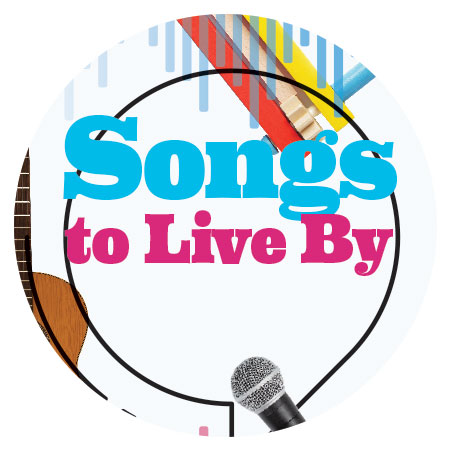
Oops! We could not locate your form.






